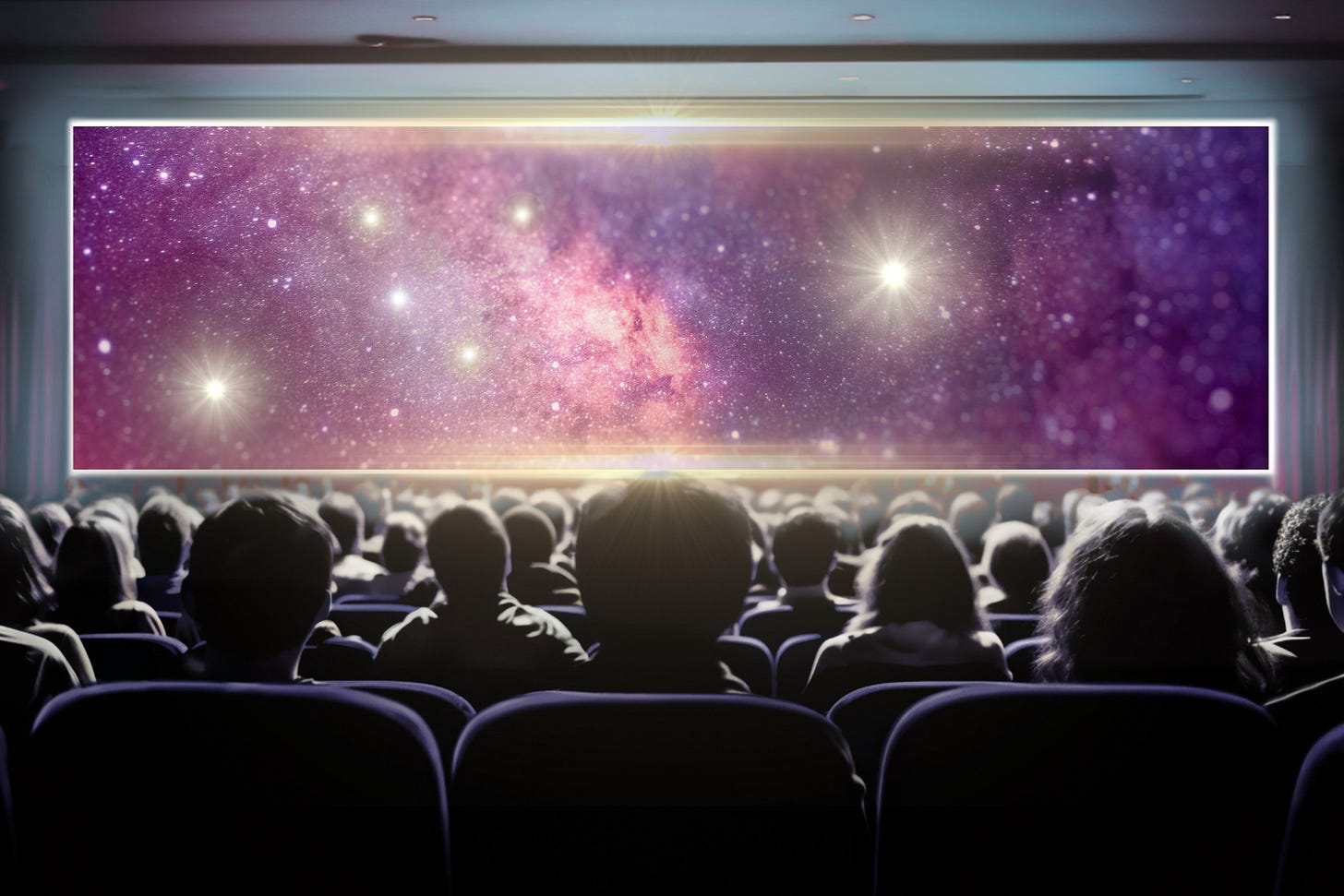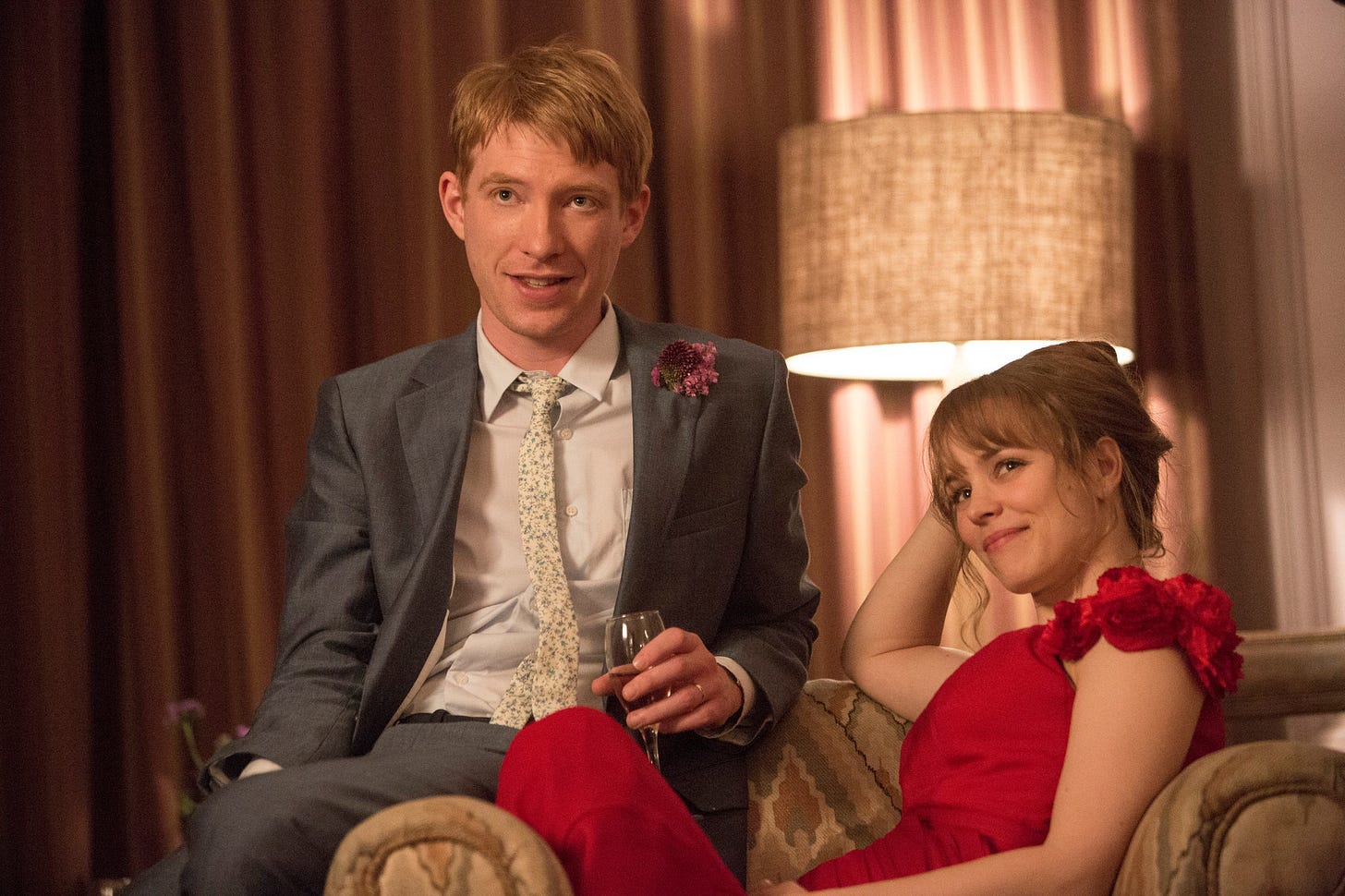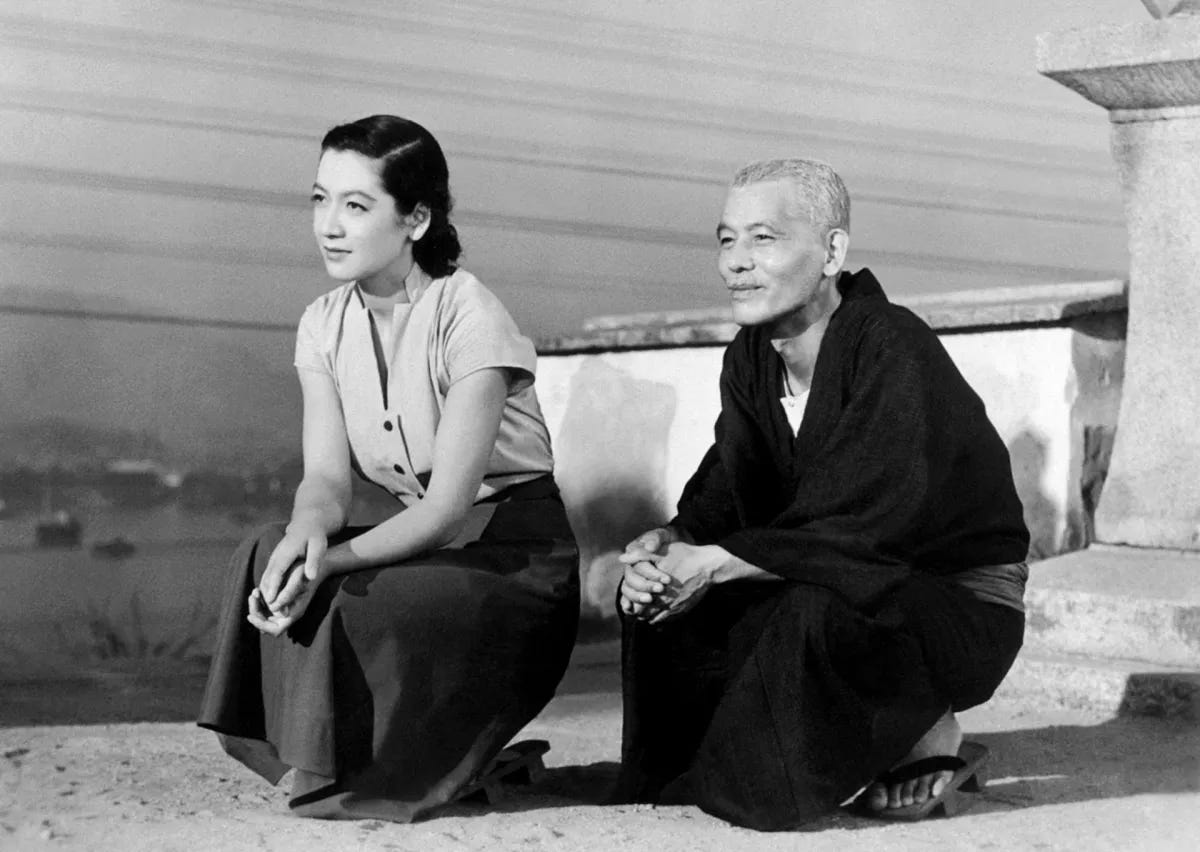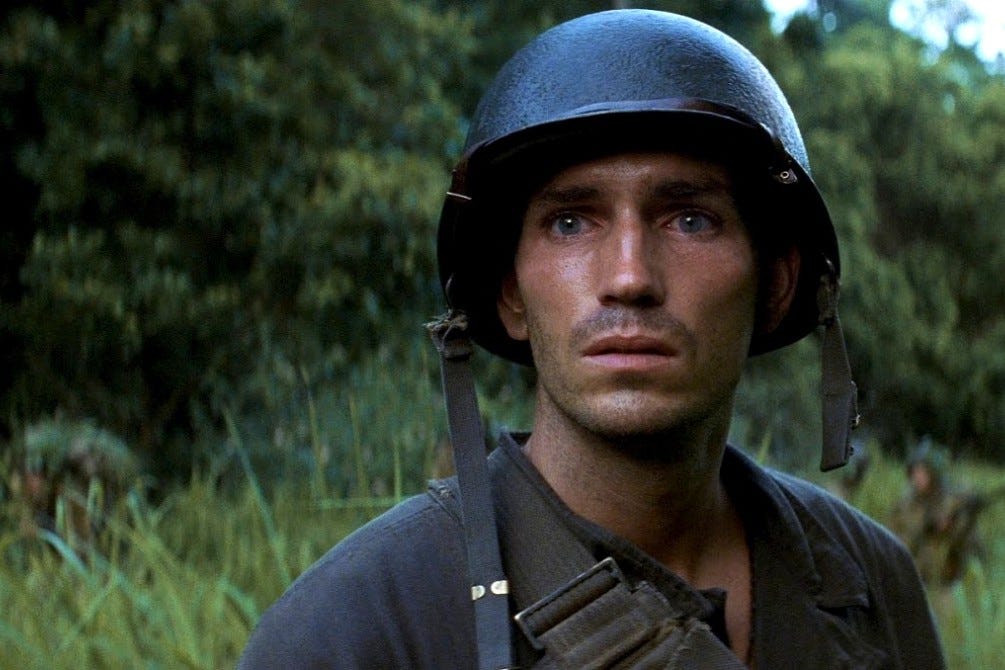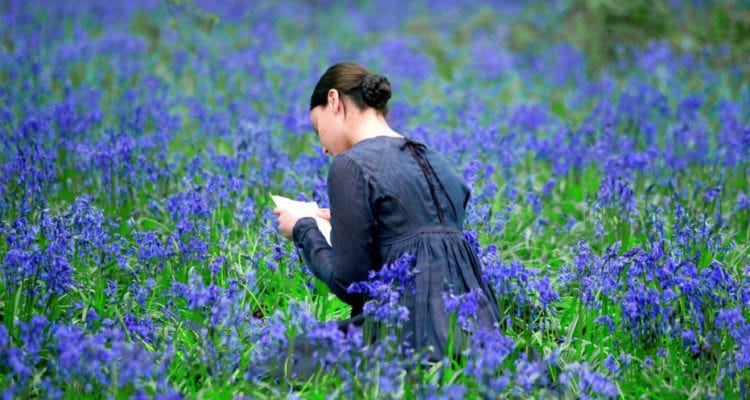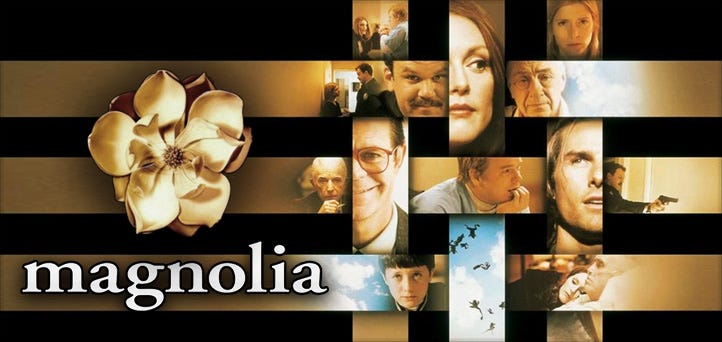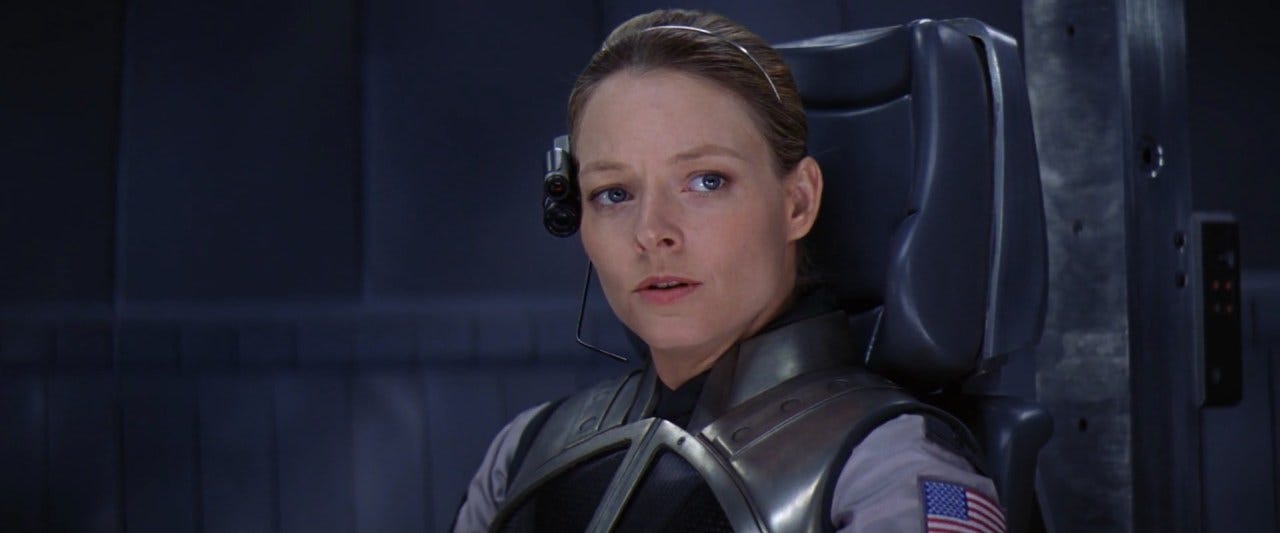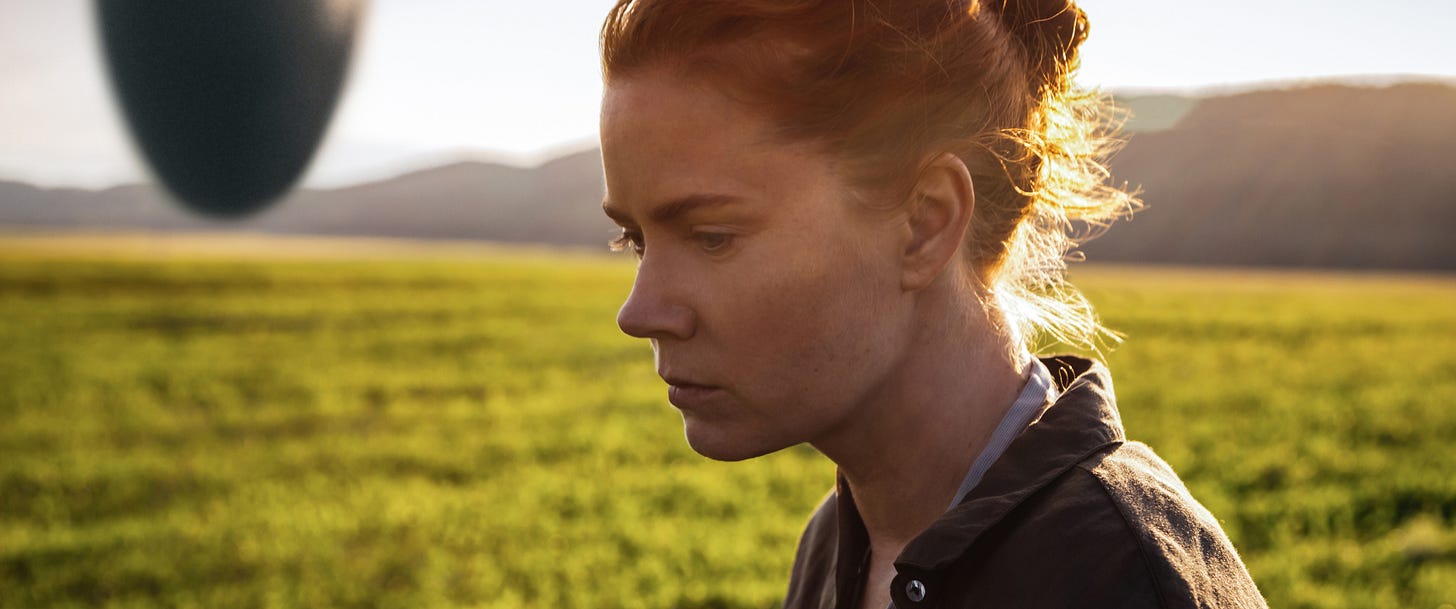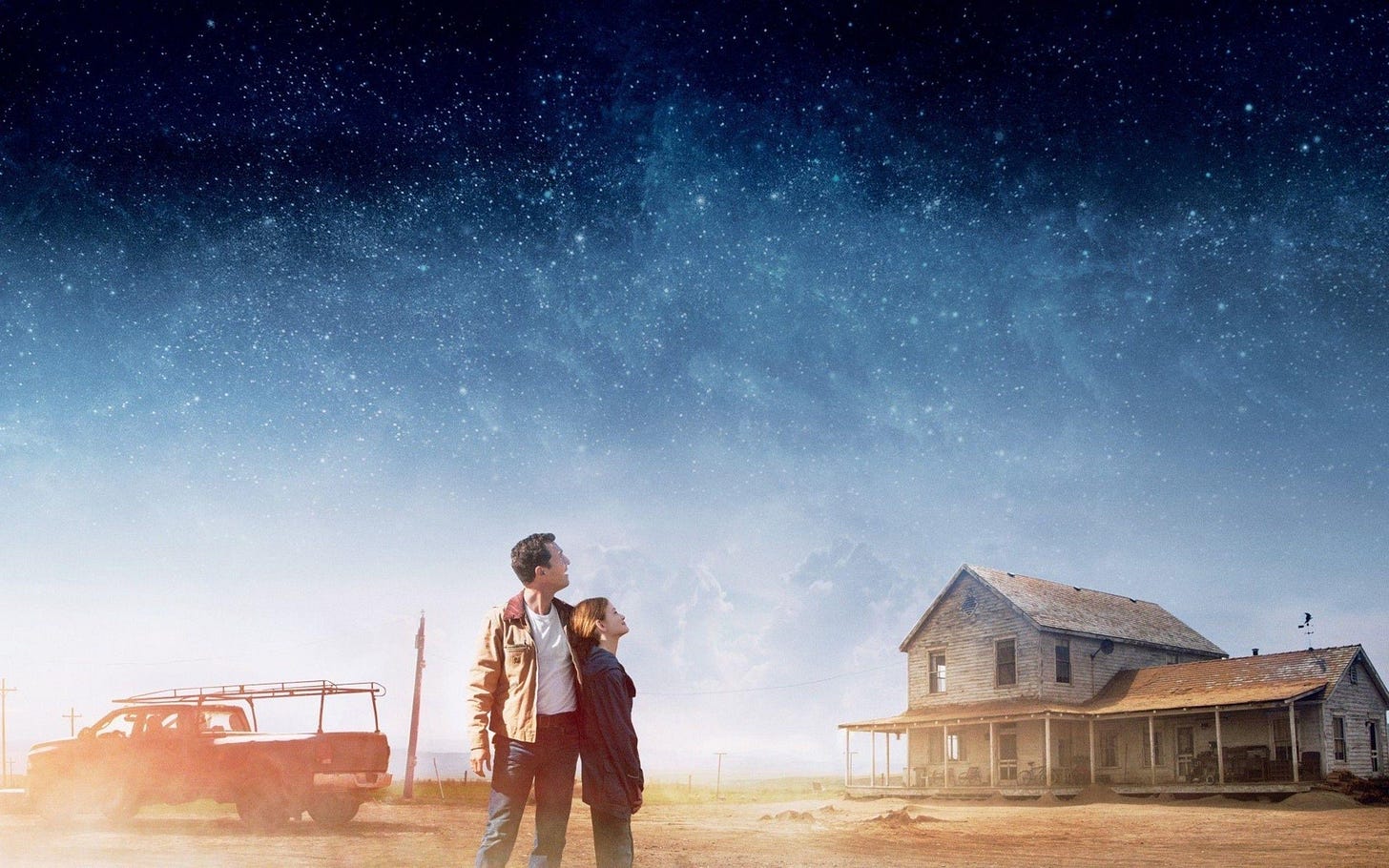I’ve always been entranced by cinema.
As a child, I was obsessed with Annie: The Musical. I was still in pre-school when I first encountered the excitement of kid actors pretending to be orphans in this rags-to-riches fantasy with catchy belt-it-out tunes. It was the first time I realized you could become a “pretender” in real life. You could turn those imaginative fantasy plays you did for fun as a kid into a profession.
During my teens, while I was relatively academic, digging out metaphors in honors English, and athletic, swimming for the varsity team, my true home was with the theater kids. Those unapologetically honest misfits were my people.
And while our day-to-day lives may have looked wildly different…in class, we all understood one thing: we were there to serve something larger than ourselves. The play came first. We were there for the big idea, for the mirror of the world we were creating. And that story was important.
I’ve never met a truly hardline atheist in a drama class. At most, they’re agnostic. Deep down, they believe in the possibility of God, because they’ve felt the magic that happens when people come together for a higher purpose.
True art can’t separate itself from philosophy. And great art, by nature, is spiritual.
Screenwriter Paul Schrader (Taxi Driver; American Gigolo) maintains that the slower, more contemplative, transcendental filmmaking is the most riveting, especially as we see a growing number of fast edits and over-the-top action to garner our ever-divided attention. He also posits that one of the essential tenets of moviemaking is taking a problem and driving it through a metaphor.
And couldn’t we say the same for all our sacred texts? They take our existential dilemmas and carry them through narratives.
The most transcendent films do something similar. They aren’t overtly religious because they must reach the secular masses. They have to meet us where we are, even in the darker, seedier places we might desire to go—but don’t. They function like morality plays: either lifting us into inspired delight or plunging us into despair. And either reaction has the power to transform us.
The following films carry that rare magic: the alchemy of motion, light, and metaphor.
The Liturgical
These films move through the rhythms of ordinary life. They invite us to sanctify time itself, sometimes through literal miracles but also by ordinary, simple acts. Time is at the heart of this collection, pressing us to consider: How will we spend our “one wild and precious life?”1
It’s A Wonderful Life
Strange, isn't it? Each man's life touches so many other lives. And when he isn't around, he leaves an awful hole, doesn't he?
One of the best scenes showcasing Stewart and Reed’s chemistry.
There’s a reason this classic film returns to our homes every holiday season. Some dismiss it as overly sentimental, but each year I’m struck again by how dark and deeply real the story is.
A suicidal family man, weighed down by what he considers failure and misfortune, reaches his breaking point. It resonates by acknowledging the unfairness of life, the ripple effect of our choices, and the aching question of whether our lives matter. And in the end, it blazes with hope, reminding us of the unshakable truth of human dignity.
About Time
We're all traveling through time together, every day of our lives. All we can do is do our best to relish this remarkable ride.
I went into this Working Title film thinking it was a solid romantic comedy from Richard Curtis, writer/director of Love, Actually. I hadn’t seen the trailer, and knew nothing about this story. I now view this as one of my all-time favorite movies. At it’s core yes, it’s about love, but not only romantic love, it’s about the love of family, carpe diem-ing life to its fullest—all told through the frame work of time travel. If you haven’t seen this film, you are missing out on one of the most deeply loving messages and creative premises out there.
Tokyo Story
Sometimes I feel I can't go on like this forever. Often I wonder, when I can't sleep, what will become of me if I stay this way. Day passes and night comes, yet nothing happens, and I feel a kind of loneliness. My heart seems to be waiting for something.
At first glance, Tokyo Story seems like nothing much happens: an elderly couple travels to the city to visit their dismissive grown children. But watching this in film school brought me to tears at its profound meditation on time, impermanence and obligation.
Ozu’s is a master observer and brings the audience in to the silence between the tension. He understands that withholding emotion, camera movements, and favoring lingering long shots makes even the slightest bit of emotion that much more powerful.
The Weight of Glory
These films wrestle with splendor and suffering. Like the psalmist or Job, they cry out to a God that we sometimes cannot hear.
The Thin Red Line
How'd we lose that good that was given us? Let it slip away. Scattered it, careless. What's keepin' us from reaching out, touching the glory?
The Thin Red Line was my first introduction to Terrence Malick. I was 19, already deeply immersed in acting and filmmaking, and the late '90s were a golden era for visually stunning blockbusters that carried the emotional weight of art films. The year before had given us The English Patient, Good Will Hunting, L.A. Confidential, Life is Beautiful, Gattaca, Contact, and Titanic, to name a few—then 1998 arrived with this gem.
The Thin Red Line is pure poetry, composed through luminous splices of motion and light. If any filmmaker can capture the gravity of arms reaching toward heaven while remaining chained to the brutal weight of earth, it’s Malick. This film is a hymn to lost innocence, a fall from Eden into the devastation of apocalyptic war.
It moved me so deeply that I still remember the quiet embarrassment of sitting in the theater on opening night, unable to stop crying as the lights came up.
The Tree of Life
And love is smiling through all things.
In Terrence Malick’s most ambitious film (and arguably his magnum opus) we witness the cinematic birth of the universe, juxtaposed with the intimacies of a 1950s American family. As Malick himself described it, this is “the story of a soul.” It’s a meditation on the spiritual reckoning of adulthood—the loss, the grappling with sin, the reconciliation and ultimately, God’s grace.
At one point, the mother says, “The nuns told us there are two ways through life: the way of nature and the way of grace,”—a line that sets the film’s central theological tension in motion.
The film is overtly biblical, even specifically Catholic in its framework. Drawing from Job and Augustine, Malick filters the narrative through the lens of his own childhood faith.
This may be the most arresting film I’ve ever encountered. It’s certainly the closest I’ve seen to capturing the human journey toward God.
Bright Star
Beauty is truth, truth beauty,—that is all / Ye know on earth, and all ye need to know.
Drenched in soft light and English poetry, Jane Campion’s Bright Star imagines the romance between sickly poet, John Keats and his muse, Fannie Brawne. The film is steeped in that unbearable beauty C.S. Lewis wrote of when we glimpse something eternal through the veil of mortality. Fanny’s love for Keats is devotional. She clothes him, walks with him, listens to his dreams. She tends to his dying soul without resentment.
Bright Star argues that love, when freely given, leaves behind something death cannot touch.
The Search for Redemption
The human soul drifts, rebels, and forgets. The films in the following grouping feature characters filled with grief, isolation, or moral collapse.
These stories are marked by a certain degree of depravity, which is what makes their climactic moments of awakening so powerful. As we watch these classics unfold, we’re reminded that redemption is often a hard road, but it’s the only way towards the true light of love.
American Beauty
I guess I could be pretty pissed off about what happened to me, but it’s hard to stay mad when there’s so much beauty in the world. Sometimes I feel like I’m seeing it all at once, and it’s too much; my heart fills up like a balloon that’s about to burst. And then I remember to relax, and stop trying to hold onto it. And then it flows through me like rain, and I can’t feel anything but gratitude—for every single moment of my stupid, little life.
I almost didn’t include this one… it hasn’t aged particularly well. But its core message still resonates, especially in that Keatsian sense of awakening to beauty. As a late teen, it had a significant impact on me, and it felt remiss not to acknowledge it here.
American Beauty is about a man asleep in his own life. Lester Burnham is stuck… in a dead-end job, in a loveless marriage, and in a soft, aging body. It takes the false light of youth and desire to jolt him awake, spurring him on a misguided path toward freedom. But tragically, his true awakening comes only at the end when he finally sees what matters, and by then, it’s too late.
While I can’t really watch this film anymore now that I’m a parent (Lester’s infatuation with a minor is impermissible with my shifted adult perspective), if you haven’t seen this one, and can move past the Spacey ickiness, its worth revisiting for Annette Bening alone; she’s at her Oscar-worthy best here. Watching her devour every scene as Carolyn is nothing short of thrilling.
Magnolia
The law is the law. And heck if I'm gonna break it. You can forgive someone. Well, that's the tough part. What can we forgive. Tough part of the job. Tough part of walking down the street.
Another complicated entry on this list, Magnolia is a tapestry of broken souls: addicts, dying men, estranged children, and regretful parents—all intertwined over the course of one long, confessional day in the San Fernando Valley. Some argue it’s too convoluted, too long, too over-the-top. Maybe so. But there’s something awe-inspiring about a filmmaker boldly shooting for the stars. After the success of Boogie Nights, Paul Thomas Anderson was given the freedom to do whatever he wanted…and he went biblical. (It literally rains frogs.)
At its core, the film explores the “sins of the fathers”, how the wounds of our family of origin can quietly, catastrophically shape us. And how, if we’re lucky, we might find ourselves on the precipice of healing.
Eternal Sunshine of the Spotless Mind
How happy is the blameless vestal’s lot! The world forgetting, by the world, forgot. Eternal sunshine of the spotless mind! Each prayer accepted, and each wish resigned. — Alexander Pope
At the heart of this sci-fi conceit is something profoundly spiritual and deeply tender: the refusal to forget. Not because pain is good, but because pain is what wakes us up. While many of us might long to erase the heartbreak of a love gone wrong, Eternal Sunshine asks us to do the opposite. We find ourselves cheering Joel on as he races to preserve even the most humiliating moments of his relationship with Clementine. And by the end, we’re exhilarated because they choose the full arc: the delight, the disappointment, and possibly even the heartbreak... all over again.
The Pilgrimage
My dad used to sing to me a Rolling Stones song when I asked for something he didn’t think I really needed. At the time, I found it to be utterly annoying… however, I now see the wisdom in it, and find myself doing the same thing with my sons.
The characters within this set often receive that same message when they complete their journey.
You can always get what you want, but you get what you need.
What they often discover is not what they were looking for, but what they most needed: humility, reconciliation, connection. These are cinematic pilgrimages, both literal and spiritual—echoing the a biblical exile and return, from the Israelites in the desert to the Prodigal Son.
Contact
They should've sent a poet.
I was obsessed with this movie when it came out. I saw it in the theater more times than I’d like to admit. That Pensacola beach scene felt like the ultimate catharsis, and I was more than willing to sit through the film’s long runtime just to experience that moment again and again.
On the surface, Contact is a story about the search for extraterrestrial life. But beneath the sci-fi exterior is a profoundly human pilgrimage of faith.
Dr. Ellie Arroway’s journey across space becomes a sacred metaphor: an external expedition that mirrors her internal one. And when she finally “makes contact,” the lifelong skeptic becomes a witness to the mystery that surpasses all logic.
Arrival
Despite knowing the journey... and where it leads... I embrace it... and I welcome every moment of it.
Arrival is a meditation on grief, choice, and the mystery of time. A linguist is tasked with communicating with alien visitors, and in learning their language, she begins to experience time non-linearly. Past, present, and future collapse into one.
The story becomes a theology of motherhood and sacrifice and is a surprising gem: aching, intelligent, and unexpectedly transcendent.
Into the Wild
Happiness is only real when shared.
Do I enjoy this movie beacuse Sean Penn is a brilliant filmmaker? Possibly. Do I appreciate this story because it grabbles with that post adolescent Holden Caulfield-esque cry for purity? Most likely. Do I love this film because Eddie Vedder provides the beautifully haunting soundtrack? Absolutely.
Based on the true story of Christopher McCandless, the film traces his rejection of materialism, his abandonment of family, and his journey deep into the wilderness in search of truth.
The spiritual power of Into the Wild lies in its final act. Chris’s pilgrimage reveals that the sacred is not found in escape, but in communion.
Interstellar
Once You’re A Parent, You’re The Ghost Of Your Children’s Future.
Another sci-fi epic on the list, Interstellar is a spiritual odyssey: a father’s journey through space to save his children. In the end, it’s not the black hole that saves us. It’s the belief that someone we love is still waiting on the other side.
Cinema invites us to sit in the dark and see with new eyes. These films don’t preach. They don’t offer easy answers. But they gesture toward the sacred. Toward mystery.
In the beginning was the Word, and the Word was with God, and the Word was God. Story is how we make sense of the fall and the redemption. And cinema, at its best, participates in that ancient, holy impulse—to name what is unseen and to give shape to the divine.
God doesn’t always thunder in from the clouds. Sometimes, He flickers in the quiet frame. In the echo of a line we can’t quite forget.
These stories remind us: we’re not just watching. We’re remembering something we already know.
to quote Mary Oliver





